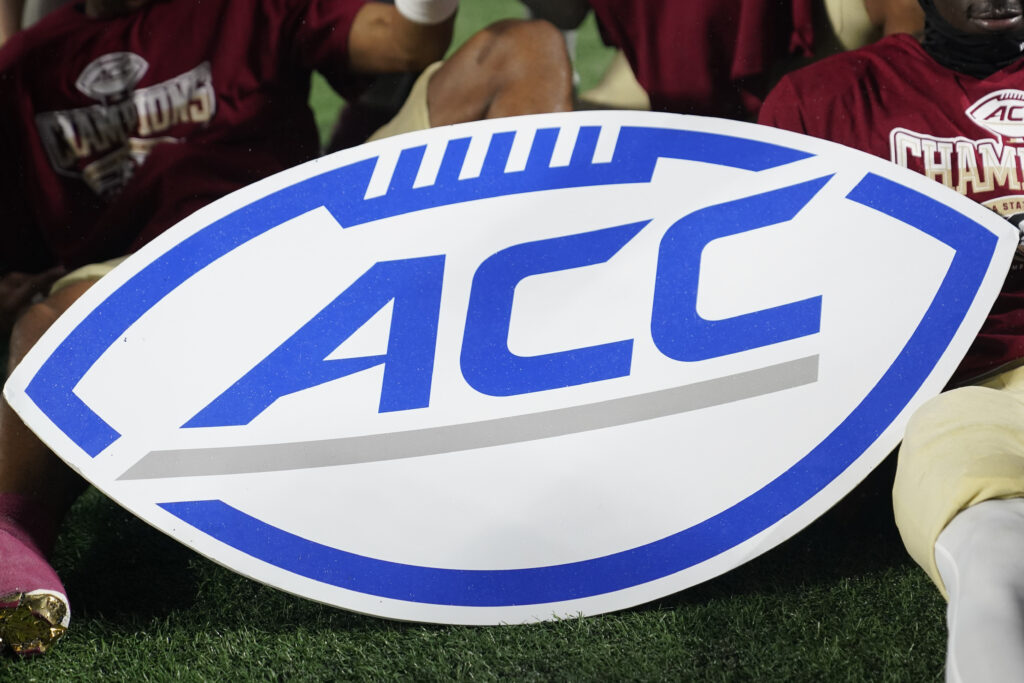The Hotline mailbag publishes weekly. Send questions to pac12hotline@
Please note: Some questions have been edited for clarity and brevity.
Which is the more likely path for Washington State and Oregon State: Joining a rumored super conference, or rebuilding the Pac-12? — @CelestialMosh
The question so many are asking but nobody can answer, including the Hotline.
What we can do, however, is address the possible outcomes and offer predictions for each.
For the Cougars and Beavers, it’s not quite as simple as joining a super conference or rebuilding the Pac-12.
The full sweep of scenarios includes:
— Joining the ACC or Big 12 in their current structures, with the latter more likely than the former but still not very likely.
— Joining whatever reconfigured conference emerges if 1) the ACC collapses, 2) its top brands enter the Big Ten and SEC and 3) the remaining schools merge with the Big 12.
The resulting league would feature at least 24 teams, may or may not be called the Big 12 and could have spots available for OSU and WSU.
— Rebuilding the Pac-12 with some combination of Mountain West members, schools from other Group of Five leagues and former Pac-12 schools that reverse course. (Stanford and Cal are at risk because of the ACC’s tenuous situation.)
— Rebuilding the Pac-12 with some combination of Mountain West members and schools from other Group of Five leagues.
— Rebuilding the Pac-12 only with help from the Mountain West — either all 12 schools or a selected number.
Next, let’s address the variables at play in shaping the future structure of the Football Bowl Subdivision.
The list starts with the NCAA’s legal issues and the impact a revenue-sharing plan with athletes will have on the competitive landscape.
(We are months from knowing the details and at least a year from implementation of any revenue-sharing plan, but the total cost of all economic changes is expected to exceed $20 million per school annually.)
Another unknown: Whether the ACC blows apart as a result of the lawsuits filed by Clemson and Florida State, which are seeking to extricate themselves from the grant-of-rights agreement.
A settlement is the most likely outcome. But we don’t know when that might occur, when the Tigers and Seminoles would leave the conference, how many schools would follow and how those left behind would respond.
So let’s offer a few assumptions.
First, the likelihood of Washington State and Oregon State joining the ACC or Big 12 (in their current configurations) is so slim as to approach non-existent.
Second, if the ACC ruptured and the Bay Area schools were forced to seek another home, their preference would be the Big Ten, as the fifth and sixth members of a western division. Stanford and Cal would agree to join a conference loaded with Mountain West schools only if they have no other recourse.
Which brings us to the predictions — and please keep in mind that all scenarios listed below likely will take years to play out:
— WSU and OSU join the current ACC: infinitesimal
— WSU and OSU join the current Big 12: 1 percent
— WSU and OSU join a reconfigured Big 12 (if the ACC implodes): 5 percent
— WSU and OSU rebuild the Pac-12 with Stanford and Cal: 12 percent
— WSU and OSU rebuild the Pac-12 with the Mountain West exclusively: 31 percent
— WSU and OSU rebuild the Pac-12 with an assortment of Group of Five schools: 51 percent
There’s one scenario not listed above but worth mentioning: The Cougars and Beavers join the Mountain West.
It’s unlikely, because dissolving the Pac-12 would mean relinquishing tens of millions of dollars in NCAA Tournament revenue due the conference in the second half of the decade.
But it can’t be discounted altogether.
How quickly would Oregon State accept a Big 12 invitation that did not include Washington State? Or vice versa? Do we measure in minutes or seconds? — @DonLoving18
Neither. We would measure in nanoseconds.
The Beavers would not hesitate to accept an invitation to the Big 12; nor would WSU.
In either instance, the school on the receiving end of the lifeline would make every attempt to create a package deal so they could enter the Big 12 in tandem.
And in every scenario discussed above, the Cougars and Beavers are linked.
Realignment is nonsensical on many levels, but a scenario in which the ‘Pac-2’ schools are separated approaches the unimaginable.
Do you think the Pac-12 Network facilities will end up producing any events outside of Oregon State and Washington State competitions next year? — @AmbitiousCoug
The Pac-12 announced Wednesday that longtime lead producer Michael Molinari has been charged with running Pac-12 Enterprises, the conference’s production unit. (The Pac-12 Networks will cease to exist this summer.)
Molinari’s twin goals: Find sports media companies willing to pay Pac-12 Enterprises for production services; and position Pac-12 Enterprises as a carrot in future realignment scenarios.
Molinari’s unit will produce home sporting events for WSU and OSU, and we suspect there will be limited revenue opportunities available through partnerships with media companies. But any outsourcing of production is unlikely to be trajectory-altering cash for the ‘Pac-2’ schools.
At last, that’s our near-term outlook.
If the conference remains viable later in the decade, more opportunities might surface.
Why would The CW even bother agreeing to a contract for one year for only two schools — schools that were left orphaned by the rest of the Pac-12? — @MrEd315
Because network executives believe it’s good business, and we agree.
Although financial terms have not been disclosed, The CW likely is paying a relative pittance — probably $1 million per game — to broadcast quality college football.
(Most of the WSU and OSU games scheduled for broadcast on The CW involve Mountain West opponents, and the MW is attractive enough to have a media deal with Fox and CBS.)
The ‘Pac-2’ broadcasts work for The CW’s broader business model, as well. The network has a package of ACC games that can lead into, and promote, the WSU and OSU telecasts. In other words: synergy.
In fact, a report by Deadline on Thursday indicates The CW wants to increase its inventory of live sports and is discussing with ESPN the possibility of sub-licensing events from ESPN+ and placing them on The CW broadcast network.
What’s the point spread for ACC implosion? — @mqeagan
I have not given much thought to an ACC survival point spread but probably should.
The timing is tricky, however.
To provide the best possible context for readers, which is always the goal, two different lines would be necessary: One for ACC survival in the next few years; the other for ACC survival into the 2030s.
What matters most to the Cougars and Beavers is the former. Chaos sooner is better than chaos later.
What percentage chance do you give Washington State and Oregon State to receive an invitation to join the ACC or the Big 12 in the next media rights cycle? — @nickbeatty72
To be clear: The Hotline added the italics to the question, because it’s important to differentiate between the outlook for WSU and OSU in the next few years and the outlook for the ‘Pac-2’ when the next round of media rights deals are negotiated in the 2030s.
By that point, the sport will not resemble the version we’ve known for 100 years.
By the 2030s, revenue sharing with the players will be in full force. Private equity companies might operate athletic departments. The scope of Olympic sports programs across the land could be dramatically downsized. And a college football super league could very well hold the most valuable 30 or 40 football programs.
That’s another way of saying that there might not be media rights negotiations for the Big 12 and ACC in the 2030s — at least not the kind we’re used to.
WSU and OSU won’t be involved in the super league, but neither will many of the outgoing Pac-12 schools.
If the number of teams is limited to 30 or 40, as we believe, there’s a chance that only USC, Washington and Oregon would be involved.
In that situation, the conference could reform and — along with a few MW schools — morph into the Pac-14.
*** Send suggestions, comments and tips (confidentiality guaranteed) to pac12hotline@bayareanewsgroup.
*** Follow me on Twitter/X: @WilnerHotline
*** Pac-12 Hotline is not endorsed or sponsored by the Pac-12 Conference, and the views expressed herein do not necessarily reflect the views of the Conference.
Related posts:
 Wilner Hotline: Sunday Reactions to Pac-12 Saturday, Devilish Downturn
Wilner Hotline: Sunday Reactions to Pac-12 Saturday, Devilish Downturn

UCLA guard Jaime Jaquez Jr. (24)(AP Photo/José Luis Villegas)
A quiet NBA Draft awaits the Pac-12, which speaks volumes about the state of the conference Pac-12 survival: Time for commissioner George Kliavkoff and the presidents to take swift, bold action (i.e., the “Costanza plan”)
Pac-12 survival: Time for commissioner George Kliavkoff and the presidents to take swift, bold action (i.e., the “Costanza plan”)

(AP Photo/Amanda Loman)
Pac-12 survival: Are Oregon, UW, Stanford and Cal worth the investment? Breaking down the Big Ten expansion mathJon Wilner
Jon Wilner has been covering college sports for decades and is an AP top-25 football and basketball voter as well as a Heisman Trophy voter. He was named Beat Writer of the Year in 2013 by the Football Writers Association of America for his coverage of the Pac-12, won first place for feature writing in 2016 in the Associated Press Sports Editors writing contest and is a five-time APSE honoree.
